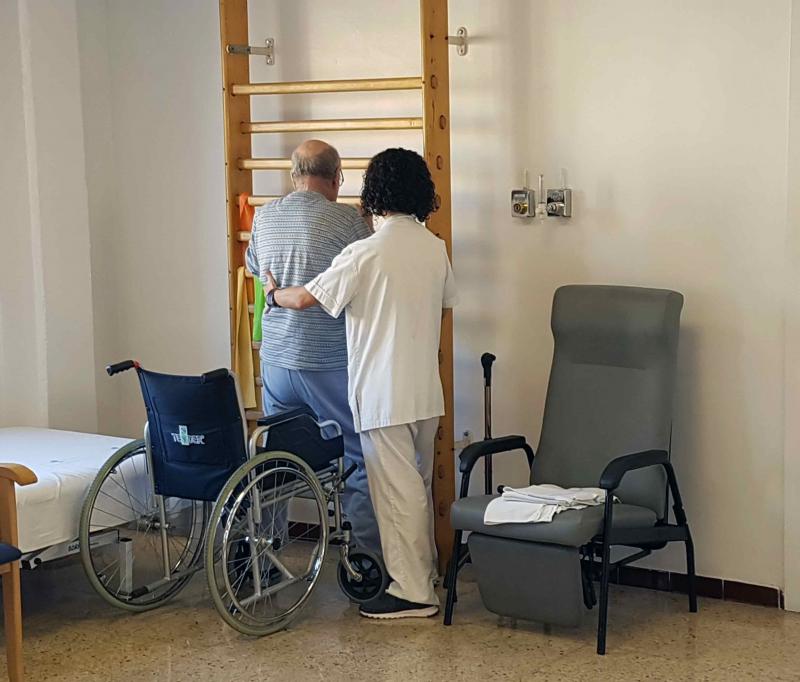
Since November, the Post Stroke Intensive Rehabilitation Unit of the Hospital Sociosanitari de l'Hospitalet has been in operation, which is aimed at accelerating the recovery of patients with post-acute stroke sequelae and a good rehabilitative prognosis. Its objective is to achieve functional recovery and facilitate the independence and reintegration into the family, social and work environment of people who have suffered a stroke, in accordance with the Master Plan for cerebrovascular disease of the Department of Health.
The main features of the Unit are the multidisciplinary work, centered on the person, with a multidimensional (biopsychosocial) and continuous assessment, which seeks the progressivity of the effort and a weekly follow-up.
The task of this unit is based on encouraging these patients to reach an optimal functional, mental, physical and social level. To achieve this, and in accordance with the guidelines of the Barcelona Health Region of the Catalan Health Service, a functional plan has been developed to attend to this type of patient in the Southern Metropolitan Area, in order to equip them of a key resource for people who have suffered a stroke. It is estimated that in this territorial area there will be between 100-120 patients a year with this profile, so the unit is sized to be able to attend to them adequately.
This is a resource that has been worked in coordination with the Neurology, Rehabilitation and Geriatrics services of the hospitals in this territory, especially with the Bellvitge University Hospital as a tertiary hospital and reference for endovascular treatments of stroke, to be able to quickly refer patients from the center of origin to this unit.
There is significant evidence showing that high-intensity rehabilitation - around three hours a day for three weeks - in an appropriate therapeutic setting (when patients receive targeted care in a group setting with patients with similar challenges), results in a sensible improvement and a reintegration into the community in better conditions. In fact, when the patient is discharged, coordination is planned with the territorial rehabilitation services to follow rehabilitative treatment at home or on an outpatient basis as the case may be, as well as with the patient's referring primary care professionals and, if necessary , with follow-up by the corresponding neurology service.


